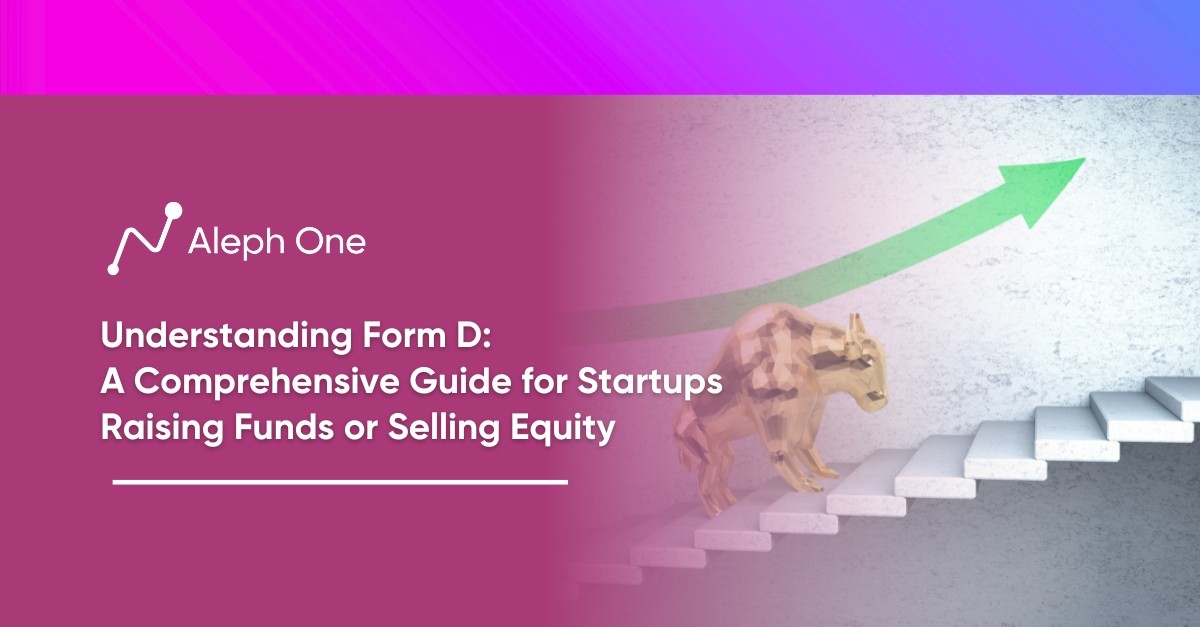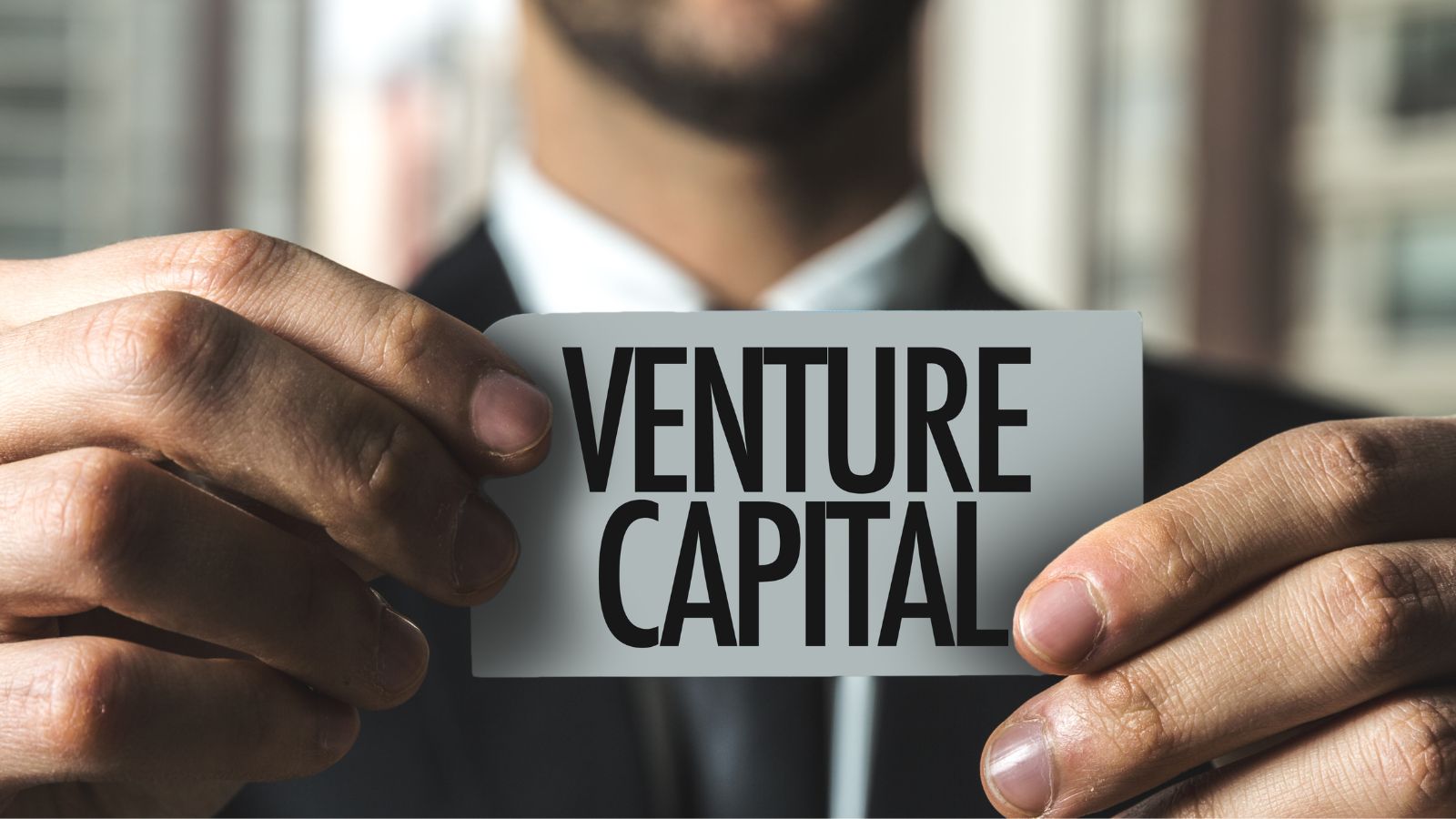Let’s work together to build something amazing. Share your project details and our team will reply to figure out the next steps to your success.

The world of startup funding has witnessed a transformation in recent years with equity crowdfunding and new regulations enabling more accessible capital. This comprehensive guide goes into the intricacies of Form D—an important document for startups seeking funds through private placement. The article sheds light on the importance of complying with Regulation D, which allows startups to raise substantial amounts from accredited investors. From explaining the key differences between Rule 506(b) and Rule 506(c) to emphasizing the significance of timely filing Form D with the SEC, this guide equips entrepreneurs with the knowledge to navigate the fundraising landscape successfully. With the stakes higher than ever, grasping the ins and outs of Regulation D can make all the difference for startups aiming to secure the necessary funding to bring their visions to life.

The Rise of Equity Crowdfunding: How Startups Can Leverage New Funding Options
New regulations in recent years have opened up equity crowdfunding to more startups and small businesses needing early-stage funding. The Jumpstart Our Business Startups (JOBS) Act of 2012 legalized equity crowdfunding in the U.S. for the first time. It allowed startups to raise up to $1 million from individual investors through SEC-registered crowdfunding portals.
Regulation Crowdfunding & Regulation A+
In 2015 and 2016, the SEC issued further rules under Regulation Crowdfunding and Regulation A+ to expand equity crowdfunding. Regulation Crowdfunding increased the maximum raise to $5 million from individual investors. Regulation A+ allowed startups to raise up to $50 million from individual and institutional investors.
The Benefits of the New Regulations
These new rules have provided startups with more options to raise seed funding beyond the traditional paths of venture capital, angel investing, and bank loans. According to statistics, equity crowdfunding campaigns raised $2.6 billion in 2020, a 30% increase from 2019. Over 1,000 startups have launched successful equity crowdfunding campaigns on platforms like StartEngine, SeedInvest, and Republic.
Benefits of Equity Crowdfunding
For startups, equity crowdfunding provides several benefits. It allows you to raise money from a large pool of individual investors who believe in your business and mission. It helps you build brand awareness and validate your business concept. The money raised is not a loan and does not need to be paid back. However, investors obtain equity in your company and expect a return on their investment.
The process for launching an equity crowdfunding campaign involves filing an offering statement with the SEC, creating a fundraising profile, and marketing your campaign to attract investors. Startups should ensure they understand all rules and regulations to remain compliant. Equity crowdfunding can be a game changer for startups, but you need to go in with realistic expectations and a willingness to put in the work to promote your campaign to leverage this new funding avenue.
Why Regulation D Matters More Than Ever
Regulation D provides exemptions for private placements, allowing startups to raise unlimited money from accredited investors. Under Regulation D, startups can raise funds through Rule 506(b), which allows solicitation to accredited investors only, or Rule 506(c), which permits general solicitation, but investors must be verified as accredited.
Regulation D is Crucial for Startup Growth
According to the SEC, over $1.5 trillion was raised under Reg D in 2020, making it a crucial fundraising avenue for startups. However, many startup founders do not fully understand Regulation D and how to file Form D to remain compliant. Failing to file Form D or violating the rules around general solicitation can lead to penalties, rescission of your funding round, and even lawsuits from investors.
What is Rule 506(b)?
Startups raising a round under Rule 506(b) can raise an unlimited amount of money from an unlimited number of accredited investors. Accredited investors include individuals with a net worth of over $1 million or annual income of $200,000. Under 506(b), startups cannot use general solicitation or advertising to promote the offering and must have a substantive, pre-existing relationship with all investors.
Rule 506(c)
In contrast, Rule 506(c) permits startups to generally solicit and advertise their offering to accredited investors only. However, startups must take reasonable steps to verify that all investors in the round actually qualify as accredited. This includes reviewing tax returns, bank statements, brokerage statements, and other financial documents to confirm the investor meets the income or net worth requirements.
Rule 506(b) vs Rule 506(c)
Whether raising under Rule 506(b) or 506(c), startups must file Form D with the SEC within 15 days of the first sale of securities. Form D requires disclosing details about your offering, including the amount raised, the number of investors, and the exemption used. Failure to file Form D on time can result in penalties and jeopardize your funding round.
Regulation D provides essential exemptions for startups to access seed funding from angel investors and venture capital firms. However, startup founders must understand the rules around general solicitation, accredited investors, and Form D filings to leverage Regulation D successfully while remaining compliant. With over $1.5 trillion in funding at stake, Regulation D is more important than ever for startups.
The Truth About Venture Capital and How to Get VC Funded
Venture capital is often seen as the pinnacle of startup funding, conjuring up images of Silicon Valley success stories and billion-dollar exits. However, the reality of VC funding is more complex. VCs invest in less than 0.5% of startups, focusing on those with the potential for massive scale and high returns. The VC screening process is rigorous; most startups will face repeated rejections.
Cons of Venture Capital Funding
VCs also seek to maximize their returns, often taking large equity stakes and control provisions in exchange for funding. The average VC takes a 20-40% equity share in startups they invest in. They also frequently require board seats, liquidation preferences, and other terms that can significantly dilute founders. While VC money enables rapid growth, it comes at the cost of reduced ownership and control for founders.
The Benefits of VC Partnership
However, for startups with the potential to scale into large, profitable businesses, VC funding remains unmatched. Top VCs provide capital, connections, and guidance to help startups accelerate their success. The best VCs act as partners to help startups navigate challenges and achieve key milestones. They open doors to corporate partners, executive hires, and follow-on investors. And VC backing acts as a signal of quality, making it easier to raise additional funding.
How Startups Land VC Funding
For startups, the key to landing VC funding is demonstrating the potential for hypergrowth and venture-scale returns. This means having an innovative solution, a scalable business model, and a large addressable market. Traction, revenue, and metrics showing strong momentum are also essential. Founders should network to connect with VCs, get referrals to the right firms, and tap their networks for introductions. When ready to fundraise, create a compelling pitch deck and financial model to articulate your vision. Be prepared for a long process of meetings, due diligence, and negotiation.
With the right expectations and preparation, VC funding can be a game-changer for startups. But founders must go in with their eyes open to the realities of VC partnerships and the level of success and returns required to make the investment worthwhile for VCs. VC money is not a silver bullet for most startups, and other funding sources may prove a better fit.
Angel Investors vs. Venture Capitalists: How to Choose the Right Investors
As a startup, securing funding from outside investors is crucial to scaling your business. However, startups have several options, including angel investors and venture capitalists. While both provide financing in exchange for equity, startups should understand some key differences to determine the right investors.
Who are Angel Investors?
Angel investors are high net worth individuals who invest their own money in startups. They typically invest at an earlier stage compared to VCs, often providing seed funding to get an idea off the ground or help startups reach major milestones. Angels invest for both financial and non-financial reasons, such as a passion for a specific industry or business model. They usually invest smaller amounts, from $25,000 to $500,000. Angel rounds are also usually less formal, with fewer legal requirements. However, angels have a higher risk appetite and expect a significant portion of equity in return, from 10 to 25%.
What’s the Difference Between Angel Investors and Venture Capitalists?
In contrast, venture capitalists invest money from funds raised from institutional investors, like pension funds, endowments, and family offices. VCs focus on startups with a proven business model and potential for high growth. They invest in formal funding rounds, called Series A, B, and C, providing significantly more capital, from $2 million to $100 million or more. While VCs receive equity, usually 10 to 30%, they aim for a high rate of return to satisfy their own investors. VCs also usually take a more active role, often receiving board seats and closely monitoring startups.
The choice for startups depends on your growth stage and funding needs. Angel funding may suit early-stage startups not ready for a VC round. However, VC funding is better for rapidly scaling and leveraging established VC firms’ expertise and networks. The ultimate goal is finding investors who share your vision and can propel your startup to the next level. With the right match, angels and VCs can be instrumental in a startup’s success.
The Ultimate Guide to Startup Accelerators and Incubators
Startup accelerators and incubators have become crucial components of the entrepreneurial ecosystem. These programs offer funding, mentorship, and resources for early-stage startups to scale their business. However, choosing the right program can be challenging with over 200 accelerators and more than 7,000 incubators in the U.S. alone.
What are Accelerators?
Accelerators are fixed-term, cohort-based programs that provide seed funding, connections, and mentorship to help startups quickly scale. Top accelerators include Y Combinator, Techstars, and 500 Startups. The most prestigious accelerators are very selective, accepting only 1% of applicants. Graduates have raised over $20 billion in funding and achieved over $500 billion in market capitalization.
Startup Incubators
Incubators are workspace programs that provide startups with resources and support to help their business grow. Incubators are less structured than accelerators and do not always provide funding. However, they offer affordable office space, mentorship, and networking opportunities. Prominent incubators include WeWork Labs, Plug and Play, and 1871.
How to Choose the Right Program
When evaluating programs, consider their industry focus, funding offered, mentor expertise, notable alumni, and application requirements. Apply to programs that best fit your startup’s goals and needs. The application process typically involves submitting a pitch deck and financial projections and going through multiple rounds of interviews. The most competitive programs receive thousands of applications for only a handful of spots.
While accelerators and incubators can be transformative for startups, they are not for everyone. The equity stakes required and loss of control may not suit some founders. The application process also requires a significant time commitment with no guarantee of acceptance. However, for ambitious startups, these programs offer unparalleled opportunities to scale through funding, mentorship, and connections. With hard work and perseverance, accelerators, and incubators can help startups achieve rapid growth and success.
Startup Grants: Free Money for Your Business (And How to Get Them)
Government grants remain an often untapped source of funding for startups. Federal, state and local governments offer small businesses and startups grants to spur innovation and job creation. Unlike equity funding, grants provide capital with no strings attached—you don’t have to give up any ownership in your company.
Small Business Administration Grants
The largest source of grants for startups is the U.S. Small Business Administration (SBA), which awarded over $1.5 billion through its Small Business Innovation Research (SBIR) and Small Business Technology Transfer (STTR) programs in 2020. The SBIR/STTR programs fund startups to develop and commercialize innovative technologies. Startups can receive up to $1.5 million in funding through a competitive application process. The programs have funded startups across industries, including biotech, IT, cleantech, etc.
State and Local Governments
State and local governments also offer grants for startups, especially those creating jobs or economic opportunities in a region. For example, the State of Ohio’s Third Frontier program has provided over $2 billion in grants to startups since 2002. Startup competitions and incubators in cities like Austin, TX and Boulder, CO frequently offer grants of $10,000 to $50,000 for promising young companies.
How to Qualify for Startup Grants
To qualify for most startup grants, your company must be an early-stage startup, often less than 5 years old. You must also demonstrate job creation or economic impact potential. The application process typically involves submitting a business plan, documentation on key milestones and metrics, and financial projections. The specific criteria and requirements vary significantly based on the grant, so you need to carefully review the details for any program you apply to.
Grants Are a Valuable Source of Capital for Startups
While free money sounds appealing, startup grants do come with significant challenges. They are highly competitive, often receiving hundreds of applications for a limited pool of funds. The application process can also be lengthy and complicated. If awarded a grant, you must comply with reporting requirements to demonstrate how funds were used. However, for startups with limited funding options, the rewards of a startup grant far outweigh these challenges. With billions of dollars available in grants each year, startups would be remiss not to consider this valuable source of capital.
Get the latest news and updates from Aleph One in your inbox.



